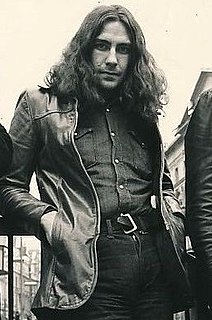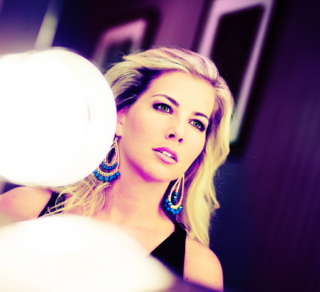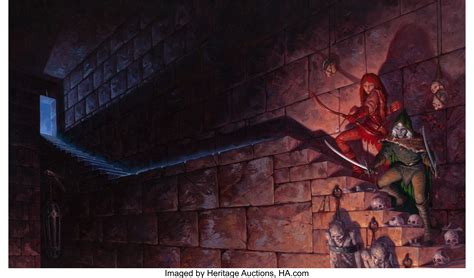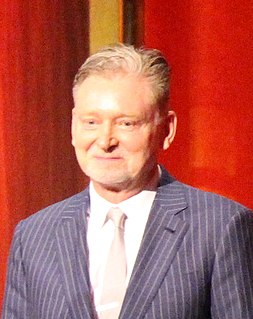A Quote by Bill Ward
When I think about Oz, when he was a teenager, I'm just reminded of what an excellent blues voice he had. He had a large voice. When we did the Aynsley Dunbar song 'Warning' and 'Black Sabbath,' his voice is so right. It's really round, and it has that pain from within in his voice.
Related Quotes
Like Hemingway and Faulkner, but in an entirely different mode, Fitzgerald had that singular quality without which a writer is not really a writer at all, and that is a voice, a distinct and identifiable voice. This is really not the same thing as a style; a style can be emulated, a voice cannot, and the witty, rueful, elegaic voice gives his work its bright authenticity.
The expectation is this low, gravelly voice for John, but I went through his early recordings and there were songs in there where the voice was so different, I wasn't even sure if it was him singing, ... So it was interesting to me that we would see him develop the Man in Black sound. I thought it was really important that his voice change as his persona slowly solidified. The music was really the doorway into the character.
Peter stood, cleared his throat, and began to hum softly, then sing, slowly building up the song as his voice cleared. He found the old tune, the song of the Sunbird. And as he sung, as his rich voice echoed off the tall cliffs, the birds and the faeries lent him their voice and soon the tune drifted throughtout the garden.
When we developed the 'Seinfeld' show, we took a bet on Jerry Seinfeld, who was not a household name. But Jerry had a voice. He was appearing on 'Late Night', on 'The Tonight Show', had some commercials out there, his voice of observational comedy, looking at the world around him, that voice was really starting to come into its own.
There are no words and there is no singing, but the music has a voice. It is an old voice and a deep voice, like the stump of a sweet cigar or a shoe with a hole. It is a voice that has lived and lives, with sorrow and shame, ecstasy and bliss, joy and pain, redemption and damnation. It is a voice with love and without love. I like the voice, and though I can't talk to it, I like the way it talks to me. It says it is all the same, Young Man. Take it and let it be.
The Little Mute Boy The little boy was looking for his voice. (The king of the crickets had it.) In a drop of water the little boy was looking for his voice. I do not want it for speaking with; I will make a ring of it so that he may wear my silence on his little finger In a drop of water the little boy was looking for his voice. (The captive voice, far away, put on a cricket's clothes.) Translated by William S. Merwin
And then, just as Wilbur was settling down for his morning nap, he heard again the thin voice that had addressed him the night before. "Salutations!" said the voice. Wilbur jumped to his feet. "Salu-what?" he cried. "Salutations!" repeated the voice. "What are they, and where are you?" screamed Wilbur. "Please, please, tell me where you are. And what are salutations?" "Salutations are greetings," said the voice. "When I say 'salutations,' it's just my fancy way of saying hello or good morning.
I had to get the voice back, the precise pitch of Sid's voice and I'd forgotten that I'd pitched him higher than my regular voice, so that was a little difficult to begin with. It was especially hard because we started recording in the morning so I had to warm up a lot and my usual voice is a little more gravelly.
We're always being told 'find your voice.' When I was younger, I never really knew what this meant. I used to worry a lot about voice, wondering if I had my own. But now I realize that the only way to find your voice is to use it. It's hardwired, built into you. Talk about the things you love. Your voice will follow.




































